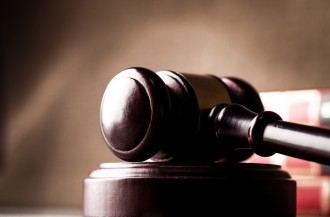June 8, 2015
Amendments to PATENT Act Proposal Takes Aim at IPR Proceedings
On Thursday, June 4, 2015, the PATENT Act made it out of committee on a 16-4 vote after amendments were made to the bill that take direct aim at inter partes review proceedings. While there is still a long way to go before this bill becomes a law, this bill is further along than any other, so it is worth taking a closer look at the proposed changes to IPR and PGR proceedings:
(1) Patent Owner Preliminary Responses: Patent Owner Preliminary Responses may now be accompanied by affidavits or declarations of supporting evidence and opinions. A Petitioner may seek leave to reply to new issues raised in the preliminary response.
(2) Institution Decisions: The current version of 35 USC § 325(d), that is included in the portion of the Patent Act that relates to Post Grant Review, has a provision that allows the Director to not institute because the same or substantially the same prior art or arguments were previously presented to the Office. The PATENT Act proposes an addition to 35 USC § 314 that includes similar language in the IPR portion of the statute, whereby the Director can choose not to institute an IPR trial if it does not serve the interests of justice (including if arguments were previously presented). This provision is broader than old 325(d) – is this an opening to dismiss Petitions of the type filed by Kyle Bass?
(3) Institution Decisions Based on Different Evidentiary Standard: It shall be error to institute an IPR on the basis that the evidentiary standard at the Office differs from that in a district court litigation. This provision seems to be aimed at promoting efficiency and certainty in prior decisions by district courts so that they may not be challenged on procedural grounds.
(4) Patent Owner’s Action: IPR Petitions will only be barred under 35 USC § 315(b) if a complaint is served that alleges infringement of a particular patent claim. This allows a Petitioner the ability to add additional patent claims if, after the 1 year bar of 35 USC § 315(b) has expired, an amended complaint or other paper in a pending litigation adds claims to the lawsuit.
(5) Claim Construction Admissions: Parties to IPR and PGR proceedings will now be bound in any subsequent proceeding or civil action with regard to any claim construction arguments, adopted by the PTAB, that were made during the IPR.
(6) Live Testimony at Oral Hearing: Either party to an IPR or PGR will have the right to present live testimony where “the panel finds that such testimony would facilitate resolution of the case because genuine issues of material fact, conflicting expert opinions, or issues of witness credibility exist.”
(7) No More Broadest Reasonable Interpretation: Claims will no longer be construed pursuant to BRI. Instead, the claims “shall be construed as such claim would be in a civil action to invalidate a patent under section 282(b), including construing each claim of the patent in accordance with the ordinary and customary meaning…”
(8) Deference to District Court: If a claim has been previously construed by a district court, the Office is required to consider that claim construction.
(9) Searchable Decisions: The Director must find a way to make all PTAB decisions available “in an easily accessible, searchable form.”
(10) Claim Amendments: If you want to propose substitute claims, you must file that paper within 30 days of the Decision to Institute. Any substitute claim must be more narrow, not introduce new subject matter, and respond to a ground of unpatentability. The Petitioner shall be afforded an opportunity to respond regarding the above requirements.
(11) Burden of Proof Relative to Proposed Amended Claims: If a proposed amended claim meets the three requirements set forth immediately above, the burden of proving its unpatentability lies with Petitioner, by a preponderance of the evidence.
(12) Presumption of Validity: A provision is added to the law that reiterates that “the challenged patent shall be presumed to be valid” and that nothing shall be construed to impact the operation of section 282(a) in proceedings in a court of the United States.
(13) Three Member Panels: Only 1 judge who participated in the institution of the IPR or PGR proceeding may sit on the panel that hears the actual trial. The Director is given 1 year to implement this change.
(14) Good Faith: The Director has 1 year to implement regulations that make it clear that statements made in IPR and PGR proceedings are subject to similar obligations as Rule 11 of the Fed. R. Civ. P.



































